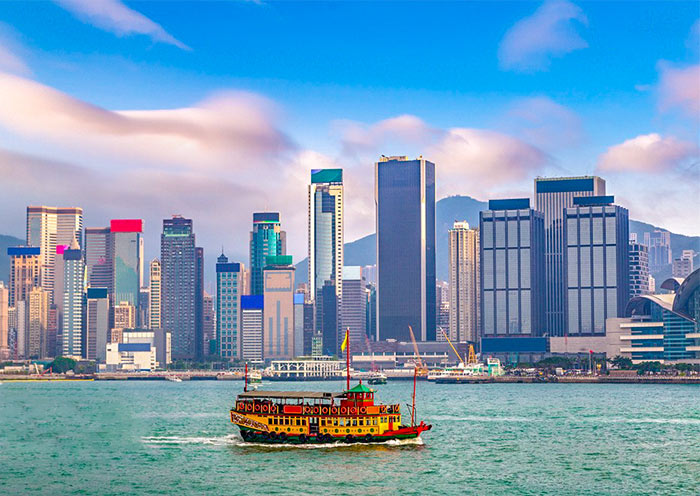20 Good Pieces Of Advice For Deciding On China Tour Websites
Wiki Article
Top 10 Tips For Regional Specialties When Shopping In China
1. Do your research before you go. Tip Know what each area has to offer. Suzhou is famous for silk; Jingdezhen is famous for its porcelain, and Tibet has thangkas.
Pro: It will help you focus your shopping efforts and avoid spending time.
Con: Requires prior preparation and knowledge of regional highlights.
2. Shop Local to ensure the authenticity of your purchase
To ensure authenticity, purchase directly from the place of origin to ensure the quality of your merchandise.
Pro: Lowers the risk of copyright goods, and also helps local artisans.
Pro: It may require traveling in less-visited areas or rural regions.
3. Check out the Workshops of Artists.
TIP: Try small workshops or artisan hubs in lieu of the usual shops.
Pro: It allows you to understand the craft better and buy directly from the artists.
Pro: Some products made by hand are more expensive and harder to bargain.
4. Recognize the significance of culture
It is possible to learn about the historical background of such items like jade carvings and calligraphy scrolls.
Pros: You'll be able to appreciate your purchases more and assign them more meaning.
Pros: It might take a while to grasp all the cultural subtleties.
5. Check Quality Carefully
You can check the quality of products by looking at them such as tea, ceramics, embroidery, or tea.
Pro: Prevents disappointment by making sure you receive what you spend for.
Pro: It takes expertise or guidance to locate top-quality products.
6. Beware of the mass-produced products
Tips: Search for original handmade items instead of replicas that are mass-produced.
Pro: It will ensure that you take home a unique and valuable souvenir.
Con: The cost of genuine craftsmanship can be costly and difficult to find.
7. Compare Prices
Tip: Comparing prices of the same product in multiple shops and stalls is a great idea.
You can identify reasonable prices to avoid paying excessively.
Con: Time consuming particularly for markets with large sizes.
8. Buy Tea from trusted vendors
Find reputable tea shops in regions such as Hangzhou or Fujian to locate Longjing (Dragon Well or Tieguanyin) teas.
Pro: Represents the highest quality and superiority.
Con: Premium teas can be costly and difficult to determine for those who are new.
9. Find out more about Local Customs
It is possible to bargain in some areas.
Shopping with a cultural twist is a fantastic opportunity to relax.
Con: Not knowing the customs can result in awkward interactions.
10. Make sure you pack your bags carefully
Prepare for the transport of fragile and bulky items like silk, ceramics, or other regional specialty items.
Pro: It protects the items and ensures they arrive in good condition.
Cons: Potential logistical problems and the possibility of shipping costs.
Advantages of Shopping for Regional Specialties
Unique Souvenirs. You won't find these products anywhere else.
Cultural Immersion: By purchasing local products, you are able to get to know the history and craft of your region.
Direct purchases from artisans support local economies.
Cons of shopping for regional specialty foods
Authenticity: Risk of purchasing counterfeits or inferior quality versions.
Moving fragile or heavy items can be challenging.
Greater Costs: Genuine regional products can be expensive Particularly handcrafted products.
You can get the most out of your shopping trips in China by implementing these simple suggestions. Take a look at the most popular find travel ideas for this location for blog advice including chinaexpeditiontours.comattractions, eating in changchun, eating in taiyuan, entertainment in hong kong, entertainment in hong kong, zechawa valley tour route, great tang all day mall xian.html, eating in lanzhou, jinan transportation, tours for the disabled and more.

Top 10 Tips About Tipping In China
1. Tip Tips: In China, tipping is not customary.
Benefits: You can save money and follow cultural norms.
Con: It might feel odd to those who are used to giving tips at home.
2. Check for Service Charges
Tip: In high-end hotels or restaurants in hotels, the service charge is typically included in the bill (10-15%). Therefore, tipping is not a requirement.
You don't have to leave an extra tip.
Con: Sometimes service charges aren't always clearly stated.
3. If you feel it's appropriate, just make sure you tip
Tipping: In areas that have an abundance of tourists or hotels that are located in international areas, it is common to receive tips, especially from drivers, tour guides or hotel employees.
Pro: Showing appreciation to excellent customer service is possible with a simple gesture.
Cons: The inconsistent practices of some companies could create confusion regarding the appropriate time to tip.
4. Provide Tips in a discrete manner
It is recommended to be subtly generous with your tip to avoid any awkwardness.
Pro: Avoids unwanted public attention and embarrassment.
Con: Some individuals may not accept the tip, which could lead to potential awkward moments.
5. Use Cash to Tipping
Tips: Pay cash instead of adding a tip to your bill if the tipping method is acceptable. Most payments systems in China are not equipped with the option of tipping.
Pros: Cash can be utilized anywhere and is simple to get.
Cons: May be difficult to use if you only have very small amounts.
6. Tip for Businesses that are focused on tourists
Tipping is common in areas in which Western tourists frequent for example, restaurants in the international market or tour guides.
Pro: It is in line with the expectations of service providers familiar with Western standards.
Con: It encourages a gradual shift towards tipping, something that isn't necessary in cultures in which it has been practiced for centuries.
7. Avoid Tipping Taxi Drivers
Tipping taxi drivers to pay for their services isn't common. Instead, you could increase the amount of your fare to make it more convenient.
Cons: You won't be able show respect while keeping up with local customs.
Con: Rounding up could be misinterpreted as a way to help in non-tourist areas.
8. When you tip your tour guides
Tipping the driver or guide for a private tour, or group tour is standard in major cities like Beijing or Shanghai. In small amounts (e.g. 50-100 yuan) are typically valued.
Pro: Rewarding good service.
Con: Setting expectations for future visitors to give more.
9. Avoid Over-Tipping
It is possible to give a small amount (between 5 to 10%). Tips that are large can be deemed excessive or unproductive.
Pro: Stops locals from being offended or overspending unnecessarily.
Pros: Tipping generously may make it uncomfortable to hold back.
10. Research Ahead of Time
Find out about the local customs and practices for tipping before you travel. Certain provinces, businesses, or other establishments catering to foreigners may have different expectations.
Pro: You will be able to adapt to local customs and avoid misunderstandings.
Con: It can take time to research each region or establishment each one by one.
Positives of tipping practices in China
Cost savings are that you do not need to leave a tip.
Cultural Adaptation (Alignment with tradition): Promotes respect and integration.
The simplicity. No need for more money, or calculations.
Help service providers focus on quality rather than tips.
Cons of Tipping Practices In China
Travelers who are accustomed to tipping may find it difficult to adjust.
Awkward Situations : Providing a tip improperly could cause confusion or discomfort.
Tourism has led to an increase in expectations. In some regions where tipping is the norm, it's a common.
Inconsiderate Gratitude - Tipping is one way that some travellers express their appreciation. Its absence can feel like a stumbling block.
Use these guidelines to ensure respect for the culture as well as a great dining experience. View the top see details about this location for more info including ancient football in china cuju in ancient china, shenzhen golf club, eating in taiyuan, wang zhaojun one of the four beauties in ancient china, eating in fuzhou, popular beijing night markets, snow beer the best selling beer in the world, guanlin temple, top three buddhist temples in chengdu, zhangjiajie tour maps and more.
